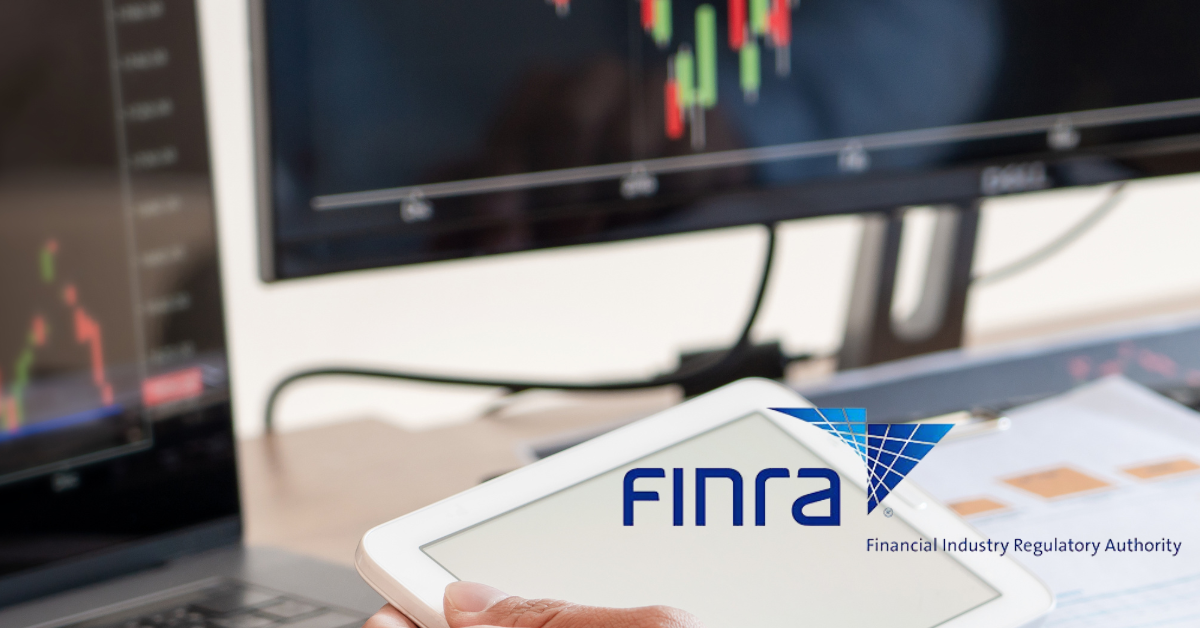What is FINRA?
The Financial Industry Regulatory Authority (FINRA) is a non-governmental organization in the United States that regulates the behavior of brokerage firms and financial advisors. Its primary goal is to protect investors by ensuring the integrity and transparency of the financial industry. FINRA creates and enforces rules and regulations to ensure fair and ethical practices in the securities industry.
- FINRA Certification:
- FINRA does not provide specific certifications. Instead, individuals in the financial industry often pursue various licenses and qualifications to operate within regulatory guidelines. Common certifications include the Series exams.
- FINRA Exam Requirements:
- To become a registered representative, individuals must pass certain exams, such as Series 7 (General Securities Representative) and other specialized exams, depending on the scope of their activities.
- FINRA Login:
- FINRA provides an online platform where registered individuals and firms can access various tools and resources. You can log in to FINRA’s online portal on their official website.
- How to Finish Registration:
- Individuals and firms involved in the securities industry must register with FINRA. This involves submitting an application, meeting qualification requirements, and passing relevant exams. Registration is typically done through FINRA’s Central Registration Depository (CRD) system.
- How to file a complaint:
- If you have a complaint against a brokerage firm or a registered representative, you can submit a complaint to FINRA through their website. They have a dedicated section for filing complaints, and they will investigate the matter.
- FINRA Licenses:
- FINRA licenses are often associated with passing a specific series of exams. For example, the Series 7 license allows individuals to sell a broad range of securities, while other Series licenses may be required for more specialized activities, such as advising on municipal securities or options trading.
- FINRA SIE (Securities Industry Essentials):
- The SIE is a relatively new exam introduced by FINRA. It assesses fundamental securities industry knowledge and is a prerequisite for many of the other series of exams.
- FINRA Pro:
- There is no specific mention of “FINRA Pro.” It’s possible that this term could be used informally to refer to experienced professionals or experts in the securities industry who are well-versed in FINRA regulations.
The Role of FINRA
FINRA oversees the activities of brokerage firms and their registered representatives, enforcing rules that govern their interactions with the investing public. This includes the licensing and registration of brokerage firms and their agents, as well as the enforcement of rules and regulations designed to protect investors and maintain market integrity.
Why does FINRA Matter?
When investors work with a brokerage firm or financial advisor, they are entrusting their financial well-being to these professionals. FINRA’s oversight helps to ensure that investors are treated fairly and honestly and that the securities markets function as they should.
How FINRA operates
FINRA accomplishes its mission through a combination of regulation, education, and enforcement. It establishes and enforces rules and standards for its members, provides educational resources to investors, and investigates and disciplines those who violate the rules.
Compliance and Enforcement
FINRA has the authority to discipline firms and individuals who violate its rules. This could include fines, suspensions, or even expulsion from the industry. By holding its members accountable, FINRA aims to maintain the integrity of the financial industry and protect investors from misconduct.

finra broker check
FINRA BrokerCheck is a valuable tool provided by the Financial Industry Regulatory Authority (FINRA) that allows investors to research and verify the background and professional history of brokers and brokerage firms. Here’s a guide on how to use FINRA BrokerCheck:
How to Use FINRA BrokerCheck:
- Access the BrokerCheck Website:
- Visit the official FINRA BrokerCheck website (https://brokercheck.finra.org/).
- Search for a Broker or Firm:
- Enter the name of the individual broker or the name of the brokerage firm you want to research in the search bar.
- View Results:
- Review the search results, which will provide a summary of the broker’s or firm’s background and history.
- Detailed Report:
- Click on the broker’s or firm’s name to access a detailed report. This report includes information such as employment history, licensing and registration details, regulatory actions, customer disputes, and any disclosures or events that may impact their professional standing.
- Understanding the Report:
- Familiarize yourself with the different sections of the report. It includes information on the broker’s qualifications, employment history, registration status, and any reported customer disputes or regulatory actions.
- Disclosures and Events:
- Pay special attention to the “Disclosures” section, which highlights any customer complaints, regulatory actions, or other significant events that may be relevant to your evaluation.
- Broker’s Registration Status:
- Check the broker’s current registration status and affiliations with brokerage firms. It’s important to ensure that the broker is currently licensed and registered.
- Additional Resources:
- Utilize additional resources provided by BrokerCheck, such as educational materials and tips on how to select and work with a financial professional.
Why Use FINRA BrokerCheck:
- Verification of Professional Background:
- BrokerCheck helps investors verify the professional background of brokers and firms, ensuring they are properly licensed and registered.
- Past Disclosures and Events:
- It provides insight into any past customer disputes, regulatory actions, or other events that may impact the broker’s or firm’s credibility.
- Informed Decision-Making:
- Investors can make more informed decisions by reviewing the broker’s or firm’s history, qualifications, and any potential red flags.
- Transparency and Accountability:
- BrokerCheck promotes transparency and accountability within the financial industry by making relevant information accessible to the public.
By using FINRA BrokerCheck, investors can empower themselves with information that aids in making well-informed decisions when choosing a broker or brokerage firm for their investment needs.
Challenges and Criticisms of FINRA
FINRA, a self-regulatory organization, faces criticism for its self-regulation and its lack of transparency in its arbitration process. Critics argue that the organization’s independence in enforcing regulations is a concern due to its funding from fees paid by member firms. The arbitration process, which operates the largest securities dispute resolution forum in the US, has been criticized for its mandatory arbitration clause, which limits investors’ ability to seek legal recourse through the court system.
Furthermore, critics question the effectiveness of FINRA’s enforcement actions, arguing that fines may not be sufficient deterrents for misconduct and that more punitive measures should be taken. The securities industry is complex, and the rules and regulations imposed by FINRA can be difficult to navigate, placing additional burdens on smaller firms and investors.
The costs associated with obtaining and maintaining licenses, particularly for smaller firms, may create barriers to entry and hinder competition. Critics also argue that FINRA should provide more investor education about the risks and complexities of the financial markets, as better-informed investors may make sound investment decisions and avoid potential pitfalls.
Lastly, FINRA has faced scrutiny for not catching certain fraudulent activities sooner, raising concerns about its ability to effectively detect and prevent large-scale financial fraud and Ponzi schemes.
FAQs and answers
Conclusion
In the complex world of finance, organizations like FINRA play a critical role in safeguarding the interests of investors and promoting fair and transparent markets. Understanding the role of FINRA can help investors make informed decisions and navigate the financial landscape with confidence.



